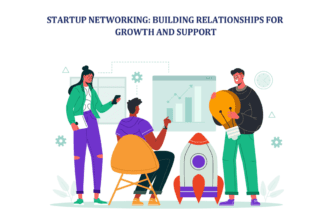If you have a small business up and running, we applaud your efforts. Managing a small business is often more difficult than running an enterprise because of the constraints on human resources, finance, and development.
Once you have set up your business, the key drivers of your growth are making more sales and expanding your customer base.
How do you scale up your growth within these confines?
Any small business that is efficient, effective, and excellent makes great use of the tools available to them. Thankfully, customer relationship management (CRM) software aids in achieving this goal.
What Is CRM?
Think of customer relationship management software as a customer relationship team packaged conveniently into the software. Not only does it help build your relationship with your customers, but also it bridges the gap between sales and marketing teams.
It is like a digital Rolodex that has evolved to become an intelligent, integrative platform that unifies sales, marketing, and support.
It was initially considered to be a tool only for enterprises. Still, CRM is now accessible and affordable for even the smallest of businesses.
Why Do You Need CRM?
Even though the world has advanced in leaps and bounds, some people still prefer not having machines do all the work. We understand this, but think of it this way:
As a small business, you are short on funds. Hiring new recruits is already risky, and training them takes time. By the time that this investment pays off, you might have lost a lot of resources.
Investing in customer relationship manag
How Can CRM Help Your Business?
If you are planning on investing in CRM, you surely want to know what the specific benefits of doing so are. When your customer base grows, you want to be able to keep up with it and not compromise on quality.
CRM becomes the secret ingredient that catapults you into this growth phase.
Here are the top five reasons why small businesses implement CRM:
1. Lead and Contact Management
Sales are the currency of business, and CRM helps boost this. In fact, using CRM increases revenue by 41%. It achieves this by streamlining sales and boosting your inflow.

It merely captures leads from your website and follows their activity across the sales process. By increasing new leads, it nurtures prospective buyers through marketing campaigns, encouraging them to make purchases.
This also helps your sales team identify potentially convertible leads and narrow their search. In effect, your company can make smarter decisions through insights such as what lead sources drive sales, which sales reps need to put in more effort, and what sales forecasts look like.
2. Improving Workflow
There are communication gaps between the sales and marketing teams. This is only worsened by the manual processes that are in place.

Small business CRM software helps overcome these barriers and creates workflows that the team can adhere to. By improving efficiency through lead follow-up, customer onboarding, and automation, CRM transforms your teams’ productivity.
3. Insights into Customer Behaviour
If you have products that have longer sales pipelines, or your product is more complicated, you need to know how your customers behave. CRM collects data about your customers continuously and helps you use this to improve your interactions with them.

Knowing what your customers like and then personalizing your interactions is key to your success. It helps close deals effectively and keeps information in an accessible place. CRM analyses months of data rapidly and enables you to understand why and how customers make buying decisions.
This can be used to improve your marketing, primarily through email campaigns, web design, and sales approaches.
4. Marketing Campaign Management
It isn’t enough to implement marketing campaigns. Smart businesses are continually evaluating themselves for their success. CRM aids this in two ways. Firstly, it centralizes your marketing process so that data is always on hand. This helps keep track of individual engagement with your marketing campaigns.

Secondly, many CRM providers offer A/B testing for understanding the potential outcome of your marketing strategies. You can conduct experiments and then decide what the best course of action will be.
5. Customer Support and Loyalty
In business, the customer is king, and you must be able to adapt to their changing demands. Customer experience is essential, especially if you are a budding small business.
If you improve customer satisfaction, your customers are likelier to be loyal to you. And a 5% increase in customer retention rates translates into a 75% increase in profitability.

Achieving this seems tricky, but CRM makes it possible. By allowing your support team to access your customer details, CRM enables them to personalize the experience. When your support team uses CRM, it responds to clients’ queries faster.
CRM also helps you offer your customers the services that they want. By timing it correctly, you can capture and convert more leads, boosting your sales in a short period.
In A Nutshell:
Small businesses that aspire to make the most of their resources must learn to cut corners with minimal loss. The lack of finance or human resources shouldn’t deter you from expanding and managing your business.
As your customer base grows, you will need a system to manage it. In the absence of trained personnel, you can entirely rely on software. Customer relationship management software collects, organizes, and analyses customer data for you, giving you otherwise unobtainable insights into your clients.
Selecting a good provider can boost your small business by increasing sales, customer engagement, and productivity. Through the integration of sales, marketing, and support, CRM centralizes and optimizes your workflow.








